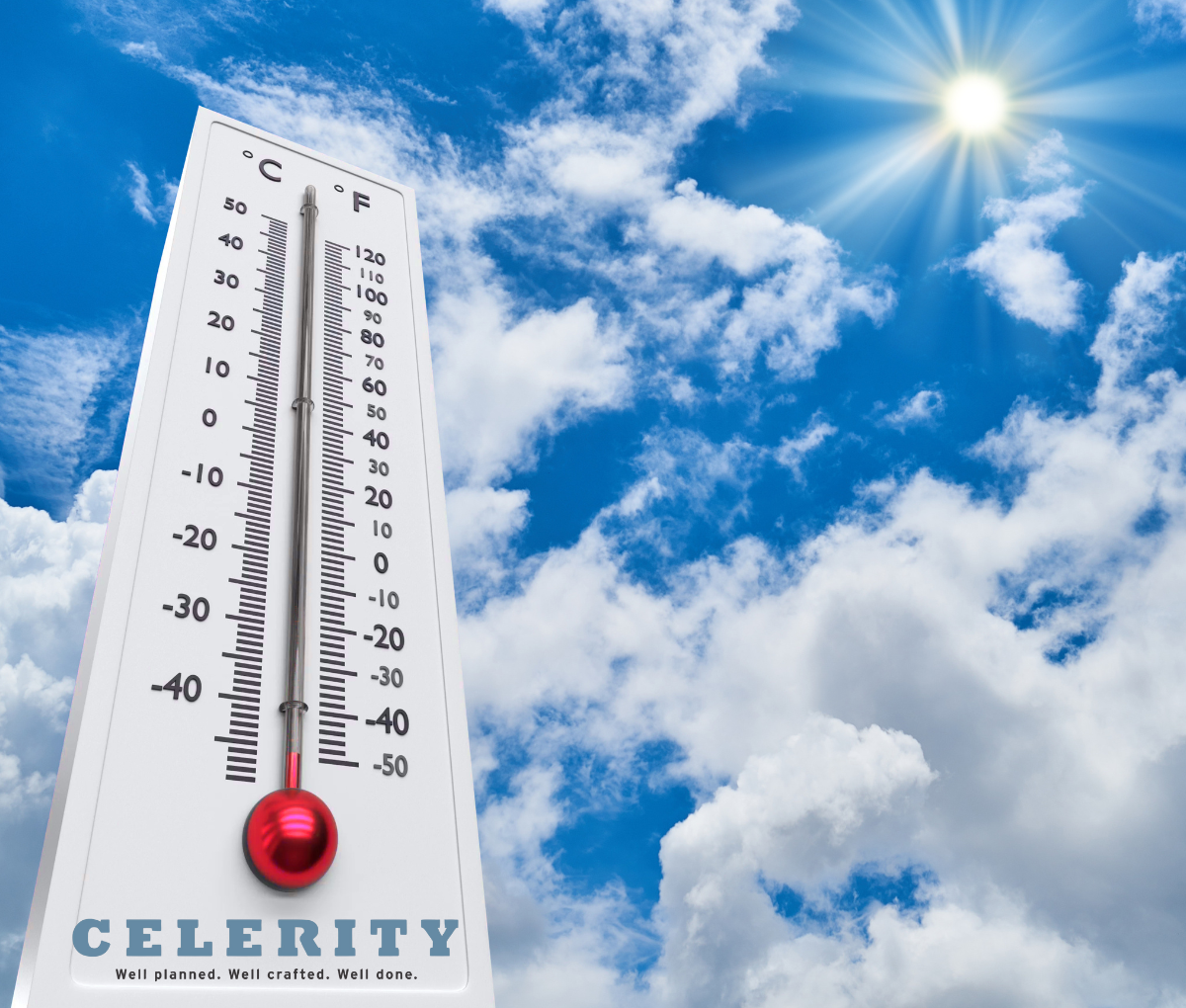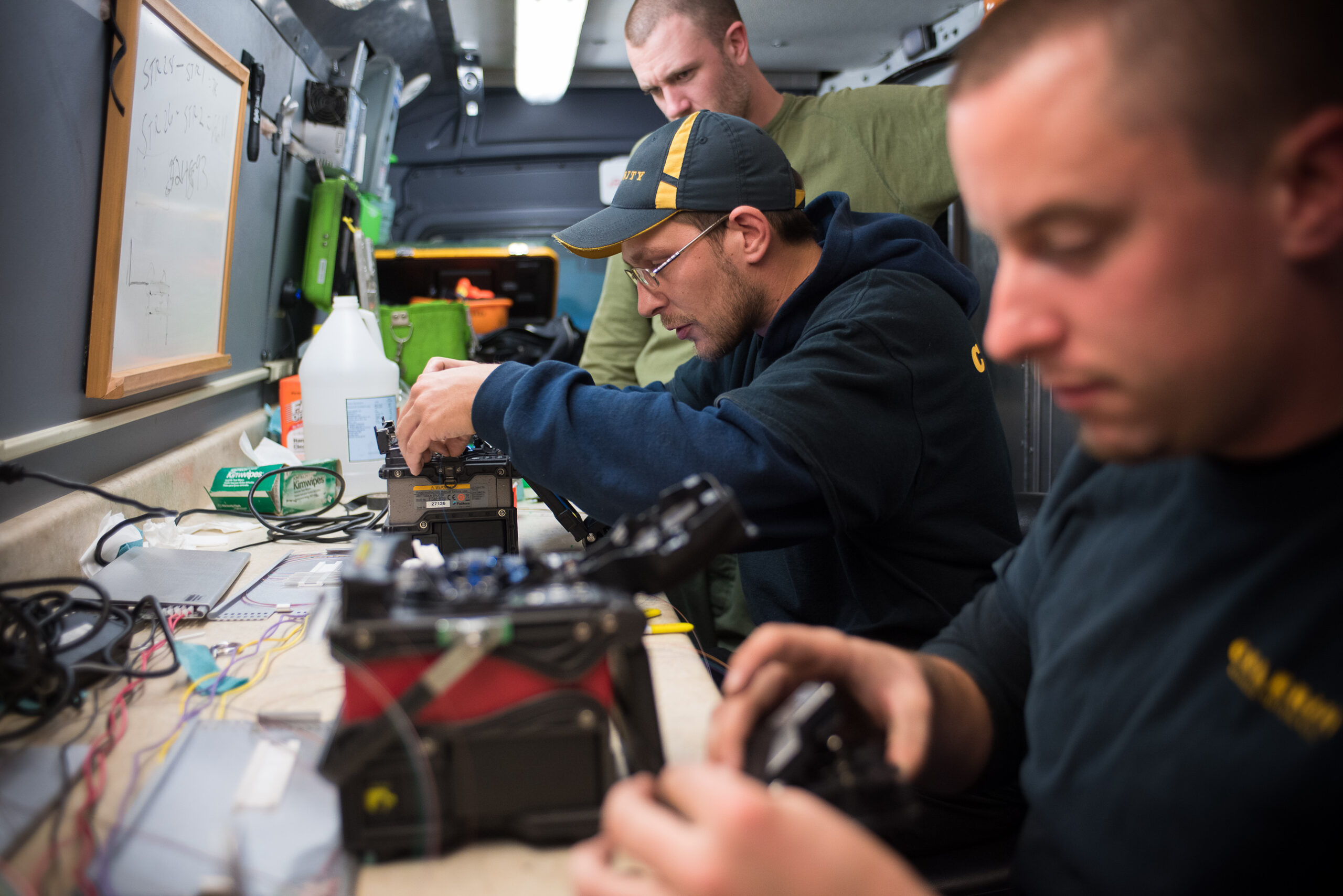As summer temperatures rise, so do the risks of heat illness for the hardworking technicians and construction crews who spend their days outdoors. With the exposure to high heat and physically demanding tasks, they face serious threats from heat stress and heat stroke. These conditions can escalate quickly without proper precautions.
Celerity is committed to raising awareness about the dangers of working in extreme heat and stressing the importance of preventative measures to protect our workers.
Heatstroke
The Mayo Clinic described heatstroke as, “a condition caused by the body overheating. This usually happens because of exposure to high temperatures or physical activity in high temperatures for too long.”
Symptoms of Heatstroke:
- A change in mental state of behavior like confusion, agitation, or slurred speech.
- Change in sweating pattern: skin may be hot and dry or profusely sweating.
- Nausea and vomiting may occur. The skin may become flushed, and breathing can become rapid and shallow.
Heat Exhaustion
A condition of fatigue and weakness, usually with a normal body temperature, stems from prolonged exposure to heat.
Symptoms of Heat Exhaustion:
- The individual may be dizzy or faint and have blurred vision.
- The skin might be cool or moist with goosebumps.
Heat Illness Prevention
Preventing heat-related injuries starts with awareness and action. OSHA states, “Most outdoor fatalities, 50% to 70%, occur in the first few days of working in warm or hot environments because the body needs to build a tolerance to the heat gradually over time.” That is why it is important to take proactive steps, especially during the initial days of heat exposure.
Drink Water: Drink water every 15 minutes when working in hot conditions. Do not wait until you are thirsty to drink water. We have provided hydration powder packets for our employees to use. We strongly encourage using electrolyte beverages throughout the day to replenish what it loses through sweat. Do not drink alcohol and avoid caffeine, as these can contribute to heat stress.
Take Breaks: Take frequent rest breaks in shaded, cooled, or air-conditioned areas. Pacing yourself and giving your body time to recover is especially important when working in heat or when you are not yet acclimated.
Speak Up: Finally, if you see a co-worker with symptoms of heat exhaustion, speak up. If you see a co-worker with symptoms of heat stroke, seek medical attention immediately. Heat stroke is a medical emergency and can be fatal if not treated quickly.



